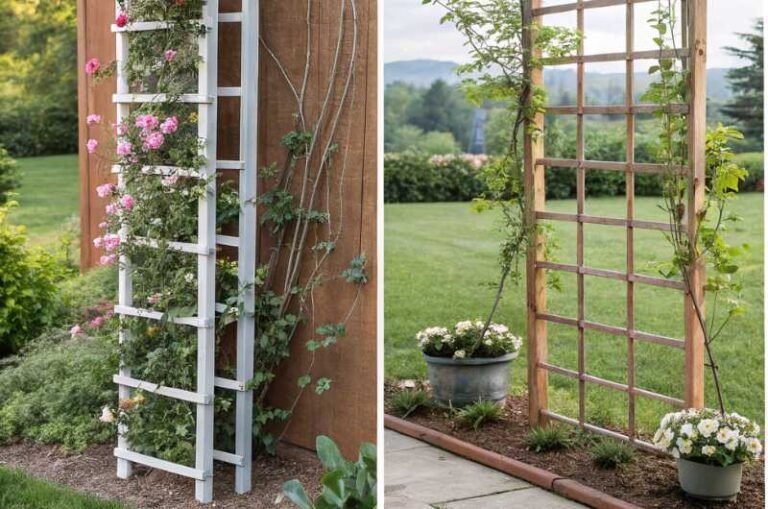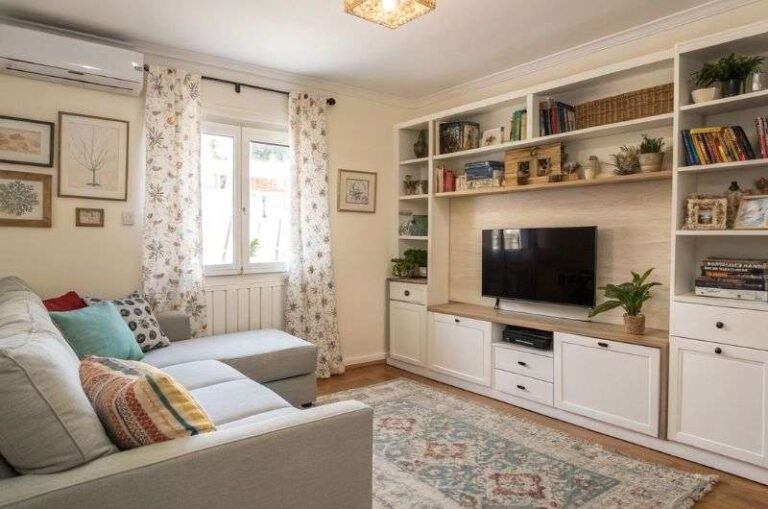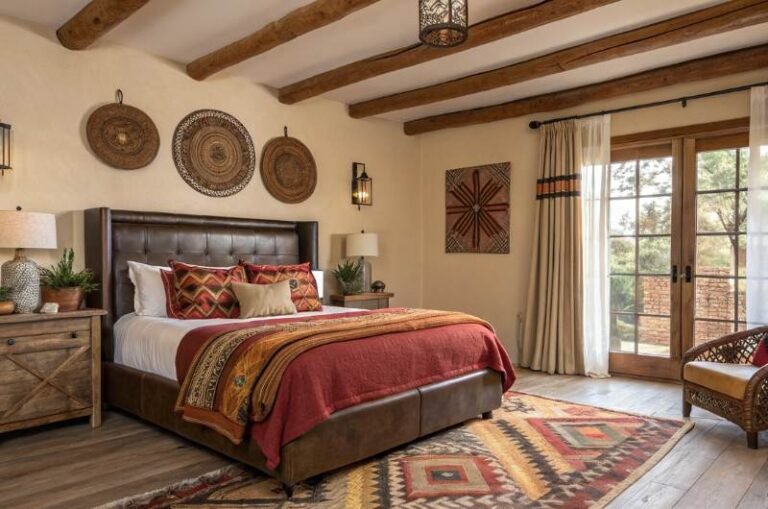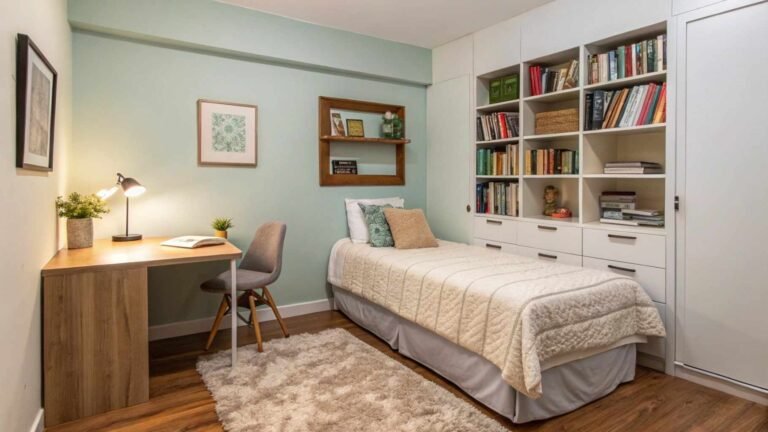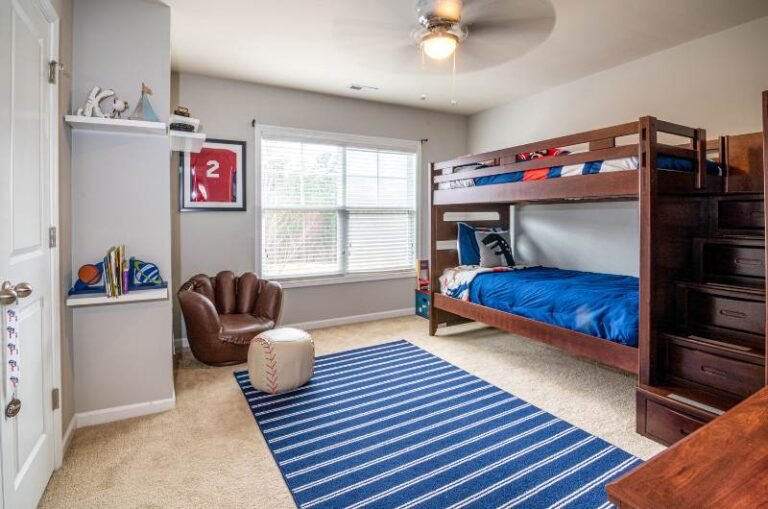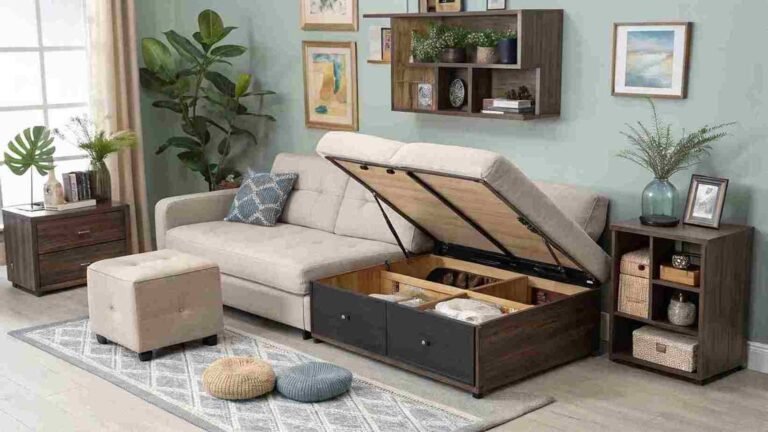The Ultimate Guide to Styling a Moody Guest Bedroom
Designing a guest bedroom that feels both welcoming and sophisticated is one of my favorite design challenges. Unlike your personal sanctuary, a guest room must appeal to a wide range of tastes while still reflecting a bit of your own personality. I set out to create a cozy retreat—a welcoming cocoon that exudes both elegance and comfort.
In this guide, I’m excited to share every element I consider essential to achieving that moody, sophisticated aesthetic while ensuring the room remains highly functional.
1. Defining the Moody Aesthetic
Understanding Mood in Design
For me, a moody guest bedroom isn’t just about using dark colors—it’s about finding that delicate balance between light and shadow, warmth and coolness, and openness with a sense of intimacy. I love the way deep, rich hues create a cocooning effect, transforming even a modest room into a serene haven where every guest can feel at ease.
Creating a Color Palette
I always start by selecting a base color that sets the tone. I gravitate toward deep blues, charcoal greys, forest greens, or even a touch of burgundy to add a sense of depth and drama. To ensure the room doesn’t feel too closed in, I balance these bold shades with crisp white, soft creams, or subtle beiges. Metallic accents—like a brushed gold lamp or matte silver decor—are my secret weapons to add a refined, unexpected sparkle.

2. Selecting the Perfect Bed and Bedding
Making the Bed the Focal Point
I believe the bed is the heart of any guest bedroom. When I design these spaces, I choose a bed that invites relaxation from the moment you see it. I prefer a low-profile frame because it creates an open, airy feel without overwhelming the space. I love using natural materials like rattan or distressed wood, which add texture and warmth—making the bed look like a soft, welcoming nest.
Coordinating Bedding for Comfort
One of my favorite parts of styling a guest room is layering the bedding. I start with high-quality, crisp sheets in neutral tones, then drape a plush duvet over them in a rich, deep shade that echoes the room’s color story. I never skimp on the pillows! Mixing different sizes and textures—velvet, linen, and wool—is my go-to method to create a tactile experience that makes every guest feel wrapped in comfort.
3. Embracing Textural Richness
The Role of Textiles
I’m a huge believer in the power of textures to bring a room to life. In my guest rooms, textiles aren’t just decorative—they’re essential. Layering different fabrics adds depth and a tactile quality that makes the space feel both luxurious and lived-in.
- Bedding and Linens: I always opt for high-thread-count sheets, a textured duvet, and an assortment of decorative pillows that invite guests to get comfortable.
- Curtains and Rugs: Heavy drapes in deep hues frame the windows beautifully, while a plush area rug grounds the space and adds comfort underfoot.

4. Art, Decor, and Functional Accents
Adding Personality with Art
Art is one of my favorite ways to infuse personality into a guest room without making it feel too personal. I choose pieces that are evocative yet understated—think scenic landscapes or abstract prints that add character without shouting for attention. It’s all about striking the right balance so that the room feels thoughtfully curated and welcoming to every guest.
Incorporating Decorative Accessories
I never overlook the power of a few well-chosen accents. A full-length mirror is essential—not only does it serve a practical purpose, but it also reflects light, making the space feel larger. A small touch of greenery, whether fresh or faux, introduces a splash of nature that softens the mood. And then there are those little details—vintage trinkets, elegant candles, or a stylish tray for personal items—that complete the look and make the room uniquely inviting.
5. Functional Furnishings and Layout
Balancing Beauty with Practicality
For me, a guest room must be as functional as it is beautiful. I always incorporate creative storage solutions—like under-bed drawers, a sleek dresser, or decorative baskets—to keep the space tidy and organized. Additional seating, such as a cozy chair or a small loveseat, adds a dedicated area for guests to relax, read, or simply unwind.
Optimizing the Floorplan
Planning the layout is crucial. I ensure there’s a natural flow in the room, with the bed as the focal point and enough space for movement. Creating distinct zones—a sleeping area, a seating nook, and even a small workspace or vanity—helps cater to the varied needs of different guests.

6. Enhancing Ambiance with Lighting
Setting the Mood with Lighting
Lighting is a game-changer in any design, and in a moody guest bedroom, it’s absolutely essential. I carefully plan a lighting scheme that includes:
- Ambient Lighting: Overhead fixtures or recessed lights that fill the room with a soft, warm glow.
- Task Lighting: Bedside lamps or a dedicated vanity light for focused illumination.
- Accent Lighting: Decorative options like wall sconces or pendant lights to highlight artwork and textures.
I always recommend investing in dimmable lights or smart lighting systems so that your guests can adjust the brightness and color temperature to suit their mood.
7. Bringing It All Together: A Step-by-Step Plan
Step 1: Define Your Vision
I always begin by creating a clear vision. I sketch a floor plan, select my color palette, and gather inspiration on a mood board. Think about the overall atmosphere you want—cozy, inviting, and a touch moody.
Step 2: Prepare the Space
Clear out the room and make any necessary updates. A fresh coat of paint in your chosen base color works wonders, and consider an accent wall or subtle wallpaper to add depth and texture.

Step 3: Select Key Furnishings
Choose the bed, seating, and storage solutions that reflect both functionality and your unique style. Every piece should contribute to the overall atmosphere while serving a practical purpose.
Step 4: Layer Textiles and Decorative Accents
Invest in high-quality bedding, curtains, rugs, and throws. I love layering textiles to add both comfort and visual interest, and then topping it off with art, mirrors, and small trinkets that speak to my personal style.
Step 5: Optimize Your Lighting
Install a mix of ambient, task, and accent lighting. Experiment with different configurations until you achieve the perfect balance that enhances every design element in the room.
Step 6: Add Finishing Touches
The little details make all the difference—a vase of fresh flowers, a stack of curated books, or even a handwritten welcome note can truly elevate the guest experience.
Step 7: Maintain Flexibility
Keep extra pillows, blankets, and essentials on hand so that the room can adapt to different guest needs. Flexibility is key to ensuring every guest feels right at home.
8. Additional Tips for an Inviting Guest Experience
Personalization Without Over-Personalizing
I always strive for a guest room that feels neutral yet thoughtfully designed. Choose timeless pieces that evoke comfort and elegance, and avoid overly personal decor that might not resonate with every guest.
Seasonal Adjustments
Tailor the textiles and accessories to the season. In colder months, I add extra throws and heavier curtains for warmth; in summer, I swap to lighter, breezier fabrics to keep the space fresh.
Small Gestures Matter
It’s the little touches that truly make a difference. A warm, handwritten welcome note, a selection of teas or coffees, or a small basket of snacks can make your guests feel deeply cared for and at home.
Conclusion
Styling a moody guest bedroom is about harmonizing aesthetics with comfort. By embracing deep, rich hues, layering diverse textiles, optimizing lighting, and incorporating thoughtful decor and functional elements, you can transform any spare room into an intimate, inviting retreat. Every design decision I make is rooted in creating an environment where every guest feels relaxed and pampered.

